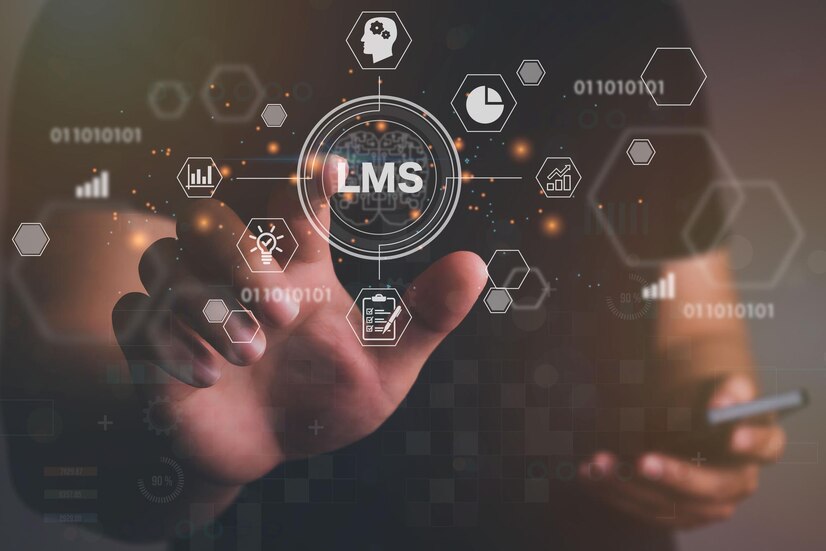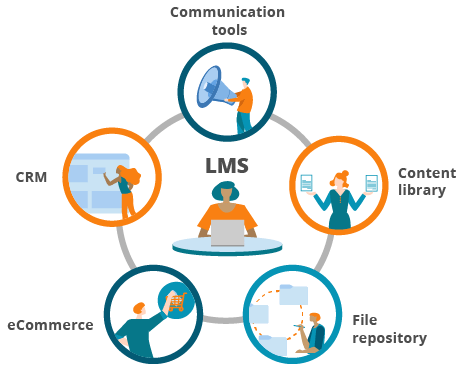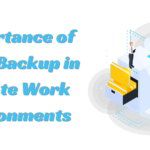Importance of LMS Integration in your Business
- 1 Importance of LMS Integration in your Business
- 1.1 Take action based on business insights
- 1.2 Reduce duplication and human error.
- 1.3 Streamline learning and development tasks.
- 1.4 Increase your customer service and sales.
- 1.5 Improve employee satisfaction and retention.
- 1.6 Improve employee performance.
- 1.7 Encourage team collaboration
- 1.8 Measure the efficiency of learning and development interventions
- 1.9 Increase the return on learning investment (ROLI)
- 2 Conclusion
The international learning management systems industry is projected to grow to slightly more than $38 billion in valuation by 2027. Learning management systems, which were initially used as standalone systems for L&D programs have now evolved into critical workforce techniques for organizations all over the world.
Learning management systems are commonly used to facilitate employee rollout, management training, sales enablement, and a variety of other tasks. Learning management systems can create, oversee, and deliver educational content, track employee progress, change behavior, and foster teamwork, among other things.
Importance of LMS Integration in your Business
Take action based on business insights
Enterprise systems can provide valuable insight into where issues and challenges need to be addressed. CRM systems, for example, can detect flaws in how your customer care handles customer relations.
Integrating an LMS with a CRM system allows you to take corrective measures instantly. It also allows you to plan and develop a lesson plan for your workers. There are more possibilities for insight and remedial action with multiple business platform integrations.
Reduce duplication and human error.
Working with various business systems within the same organization can quickly lead to complications with data security. Regular data syncing or one-time migration operations between various systems can be time-consuming and error-prone. LMS integrations aid in the complete elimination of data entry redundancy and mistakes. For instance, if your LMS has immediate access to data (perhaps from your HR system), admins will not have to enter critical details again. Instead, they simply direct the LMS to the respective user, thus minimizing errors.
Similarly, the accomplishments of your employees and online learners in your LMS can be automatically synced with your HR strategy. This can be used to monitor their performance and growth. Furthermore, even if the data is spread across multiple cloud providers, it is all accessible with a few mouse clicks. This makes it simple for administrators to join or retrieve information. It also provides the higher management with all of the information necessary to make L&D-related choices.
Streamline learning and development tasks.
LMS integrations assist your L&D teams in streamlining their work and expediting numerous time-consuming mechanisms. Gathering educational content from third-party suppliers is one example, as is constructing rosters.
Thanks to SSO integration, admins and back-end programmers don’t have to sign in separately to access all appropriate data from multiple systems. This saves both time and effort. They can also work collaboratively with instructional designers, monitor course revenues, and identify ongoing issues that customer support has to deal with.
Increase your customer service and sales.
You can make a company’s products or services-related learning available to consumers as part of the selling process or consumer onboarding process by integrating your LMS with your relationship management (CRM) system. For example, you could send product data sheets and case analysis to prospects at a specific stage of the customer journey, or a configuration tutorial to customers who have purchased your product.
You could also use your LMS integration to recognize the learning needs outlined in your CRM. As a result, your employees’ performance and customer service quality may improve. For example, you can instantly enroll sales employees in product offerings. Alternatively, recurring customer support inquiries or complaints may prompt staff members to enroll in sensitization or resolution courses.
These online training courses could serve as a resource of understanding and skill development tools, acknowledging well-known customer problems, both externally and internally.
Improve employee satisfaction and retention.
Improving the performance of employees has several benefits. Employees, for example, feel more valued, their self-worth grows, as does work engagement, and they prefer to remain with the company longer. Effective induction programs have been shown to increase employee engagement and retention by up to 82 percent.
Improve employee performance.
A shorter learning curve and improved functionality aid in increasing learning interaction. As a result, the performance of employees on the job improves.
An LMS integration can add new workers to your learning platform automatically and make sure that they receive the appropriate training. This will reduce the amount of time it takes them to integrate into the organization and reach their full productive capacity. What is the significance of this? Great onboarding programs have been shown to increase company productivity by 70%.
Encourage team collaboration
A lack of alignment within a team has a direct effect on the outcome of a project or task. Fortunately, your LMS can work in tandem with your current social and collaborative efforts. Similarly, integration with your video conferencing platform creates a comfortable climate for conference-style learning occurrences. Furthermore, incorporating your favored constant messaging platform makes course correspondence an important part of your company’s internal collaboration.
Measure the efficiency of learning and development interventions
Integration with business operations, on the other hand, can link real business outcomes to training efficiency. Once that is achieved, all that is left is to track training outcomes and see how they are influencing the business’ performance.
For instance, after-sales training, you may expect the conversion rate commanded by individual sales reps to increase.
Increase the return on learning investment (ROLI)
Learning development for employees or clients is an expensive choice. Fortunately, using an LMS and expanding its capabilities through the plug-ins with your existing programs reduces the cost of investment while also improving learning and development. There is no need to establish or set up internal operations that are easily accessible and used outside of the LMS with implementations. As a result, the overall cost of learning is reduced, deployment is expedited, and more resources can be directed toward educational content.
All of the above benefits make learning more efficient and constructive to job performance, thus optimizing the “return” aspect of ROLI.
Conclusion
There are an increasing number of possible collaborations as the amount of possible business software grows, and the level of integration can vary greatly. You could, for instance, choose to implement it with your HR system to enhance employee productivity, fulfillment, and engagement, or with your CRM system to enhance customer service and sales performance.
Every LMS integration will bring benefits to your company. Many of these advantages are described in detail here, but you may come across others that interest you. The possibilities are limitless.

















